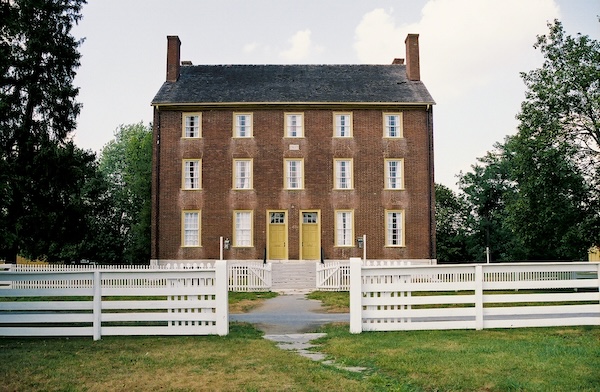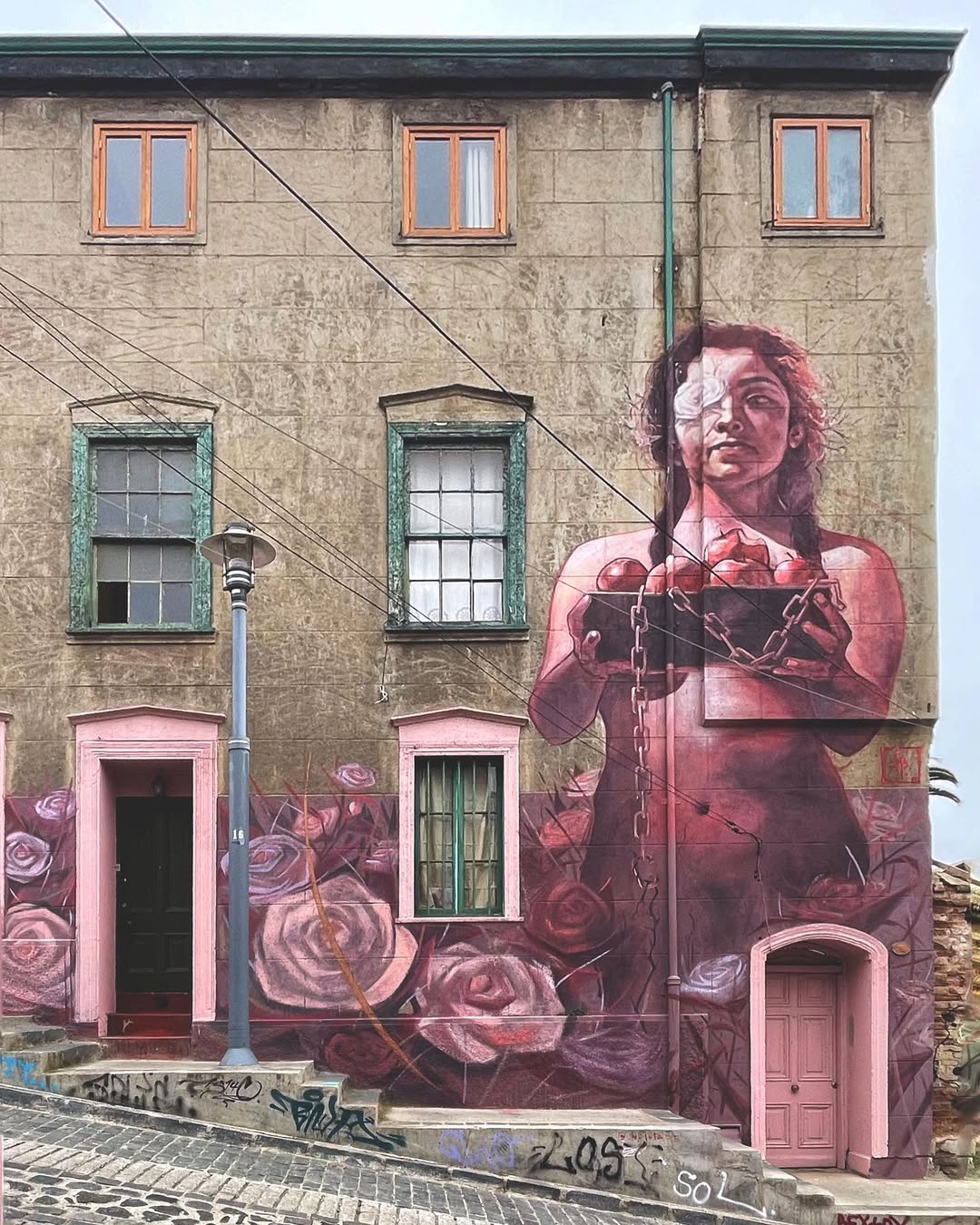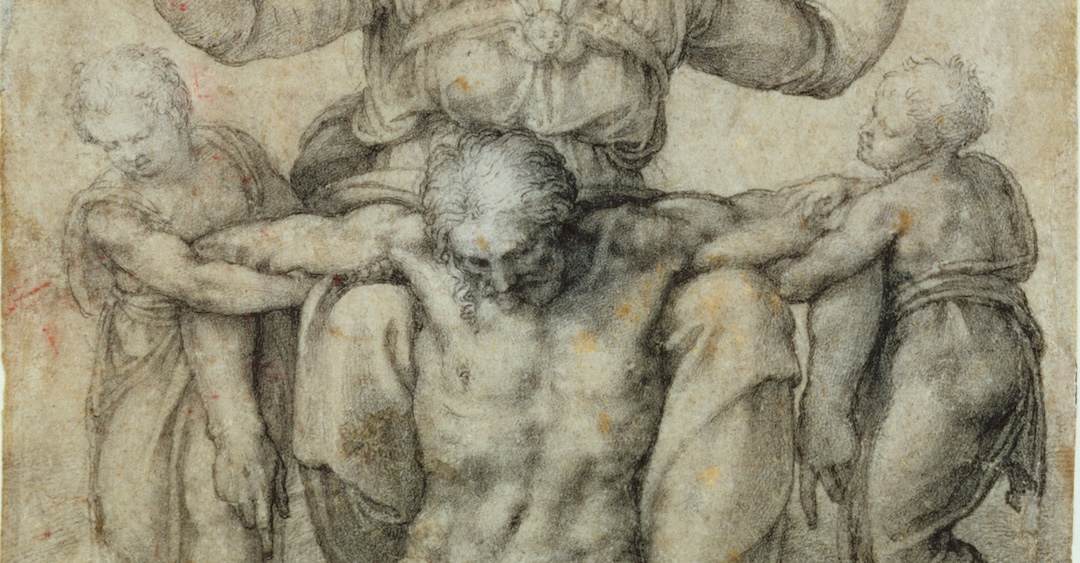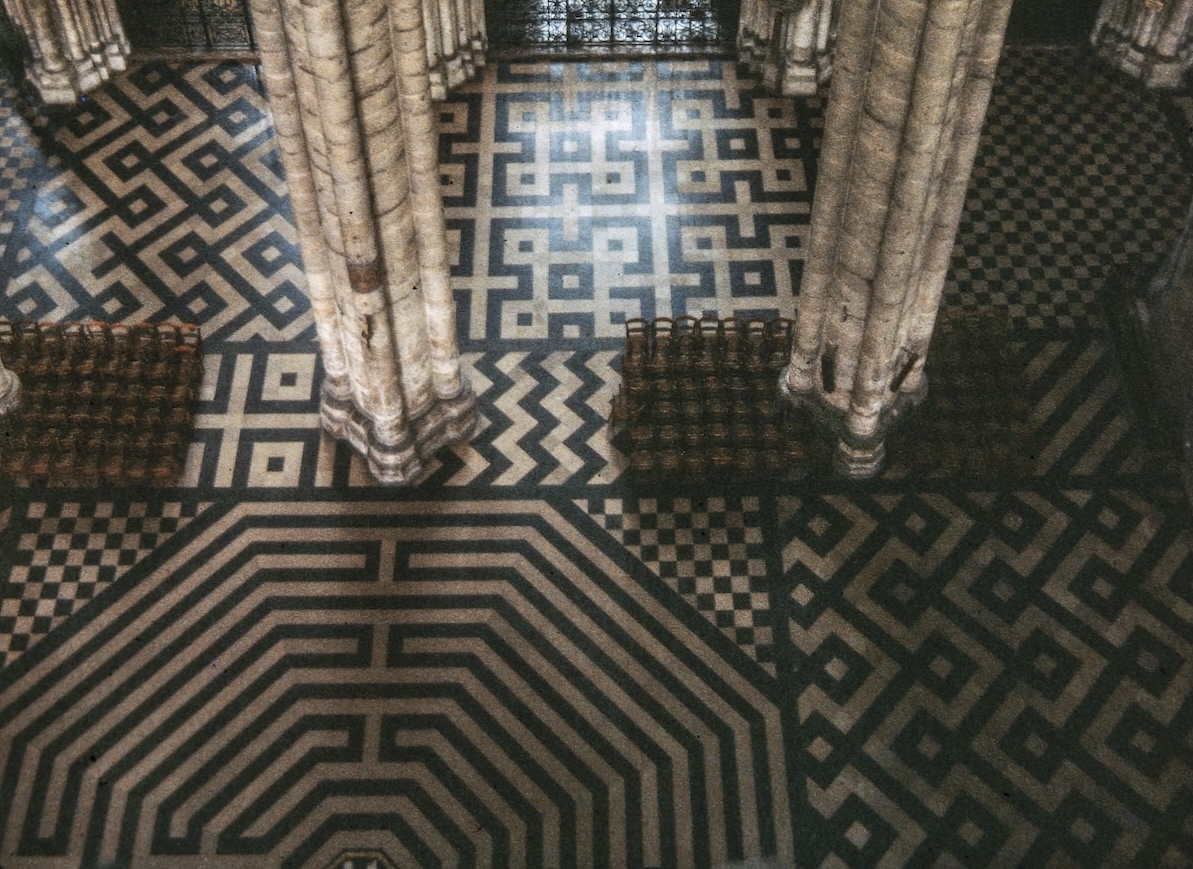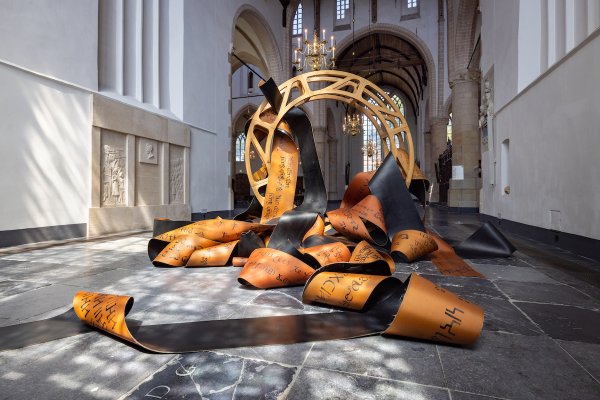
Returned in Their Midst
The artist has made a strict separation between ‘above’ and ‘below.’ Above, Jesus’ feet are still just visible before they disappear from sight in a cloud. It is amusing how the artist has substituted one of the structural consoles of the larger retable with Jesus’ feet. On the rear wall Jesus leaves behind a vague trace of light.
Below we see thirteen figures. Except for one, they all have their hands held in prayer. Apart from Mary in the foreground and the figure behind her to the right, the hands of the disciples are pointed in the same direction as their gaze: upwards at the ascending Jesus. That results in a beautiful composition in the shape of a triangle, Jesus being the top, the disciples the base, and their hands and the direction of their gaze the sloping sides. The pyramidal composition is strengthened by the fact that on the left and on the right a disciple is shown kneeling. The upper leg of the figure in green on the far left also helps to emphasize the structural lines moving towards Jesus.
Half hidden between Mary and the rear wall we can recognize Peter by his bald head. The kneeling disciple in the foreground is holding a book in his left hand. That probably indicates that he, as a disciple, will later write a book about Jesus, a Gospel. Of the four gospels two carry the name of a disciple from the circle of twelve: Matthew and John. Judging by the red undergarment of this figure it must be John. As John is holding the book in one hand, he lifts the other hand. He waves. As a farewell?
The artist has placed him opposite Mary. They find themselves on either side of the mystery, just as they often are placed on either side of the cross. Mary is looking up at an indefinable point in the distance. It is as if the artist alludes to the words of Luke’s Gospel: “But Mary treasured up all these things and pondered them in her heart.” (Luke 2:19) We see a praying Mary who is already living in the absence of her Son as human. She knows: Jesus is standing behind me.
Is that not precisely what the artist has pictured? Who else could be this mysterious figure in the red coat in the middle of the disciples? In all respects he is a unique figure. He is not turned towards the middle looking up. He has not folded his hands in the direction of Jesus ascending to heaven. Therefore he cannot just be included with the circle of the twelve. That would in any case not fit with the number: he ís the twelfth here. Eleven disciples have remained. Judas, who betrayed Jesus, is no longer there as he ended his life. His replacement, Matthias, has not yet been appointed at this moment. Who then is the twelfth? With a frontal gaze he raises his right hand. In a gesture of blessing? Should we not recognise Christ himself in him? How clever the artist gives us the experience that is told also of the disciples. Every time when Jesus after his resurrection appeared to them, they did not initially recognise him or they doubted that it really was him. The same happens to us now also!
This mysterious Jesus figure seems to be a representation of Matthew’s words as he concludes his Gospel: “And surely I am with you always, to the very end of the age.” As if to confirm that he is not looking up, on the contrary, his gaze is directed outwards, to the world where I find myself as onlooker, to my world! Or perhaps far beyond that: to the consummation of all things?
**********
Reproduced with permission from www.beeldmeditaties.nl.
Ascension, 1516, possibly made in Amiens. Detail section of the Passion Retable in Chapelle Notre Dame de la Houssaye, Pontivy, Bretagne, France.
Dries van den Akker S.J. (1945-2022) was born on 3 April 1945 in Delft, NL. He studied philosophy in Nijmegen and theology in Amsterdam and Paris. He was ordained as priest in 1976 in Groningen. In 1977 he completed his studies with a Master’s thesis about Patristics and Catechesis at the KTHA (Catholic University of Amsterdam) in Amsterdam. In 1983 he made his final vows. Teaching was in his blood. In 2020 his book about Mark’s Gospel Ga anders denken [Think differently] was published. Until his demise he was editor of the web journal Ignis. For more see
ArtWay Visual Meditation 21 May 2023
%20(1).png)





